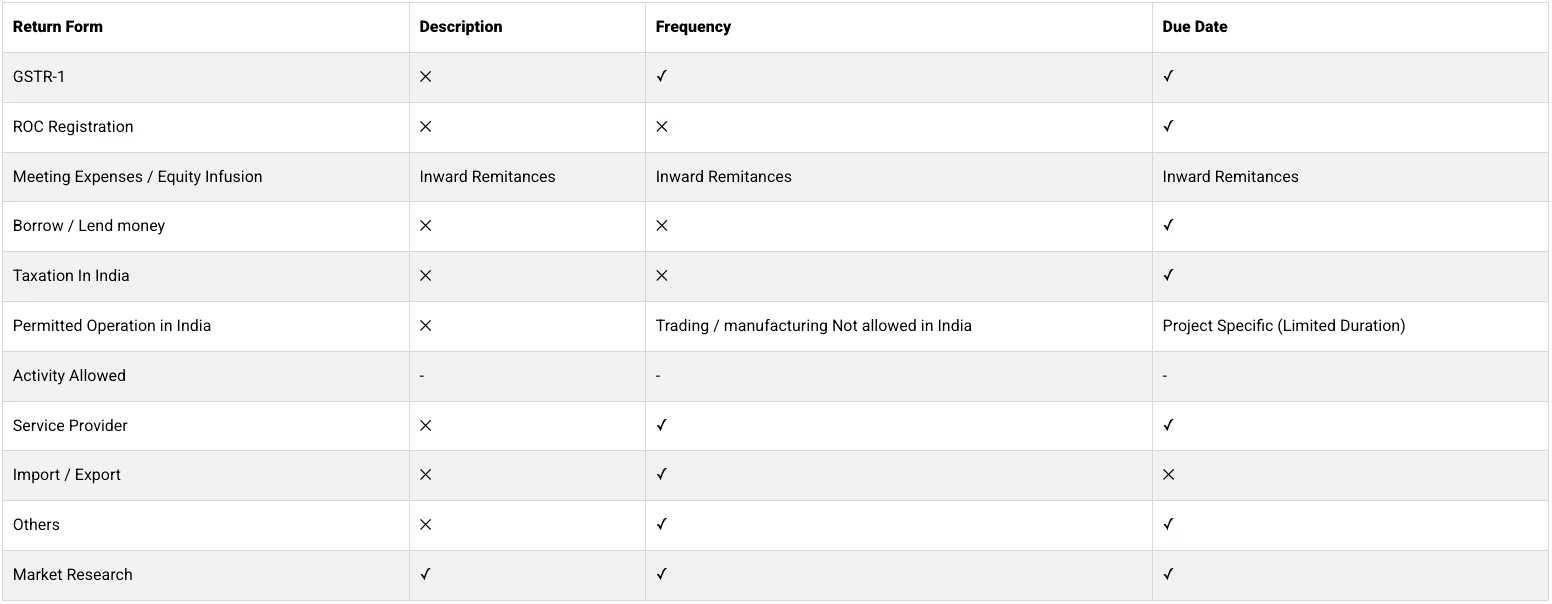Currently, we are finding millions of companies emerging. In 2021 alone, India recognized 41,061 new startups & companies. But what is a company?
A company is a legal body created by a group of people to conduct and manage a business enterprise- commercial or industrial. Depending on its jurisdiction’s corporate legislation, a company is categorized in various ways for tax and financial liability purposes.
There are many different types of companies based upon the nature of business but four most commonly used types are:
From the compliance and taxation perspective, these companies are primarily governed by three different agencies / authorities:
In this blog, we will be dealing with the ROC compliances for only two types of companies- Private Ltd & LLP.
Before we begin, let us understand the term Compliance.
What is it?
Compliance means either the state of following the defined standards or norms or the process of doing so.
The Companies Act, 2013, which applies to Private Limited Companies and Limited Liability Partnership Act, 2008 which applies to LLPs in India, governs such matters as holding board meetings and shareholder meetings as well as the selection, qualification, compensation, and retirement of the Company’s Directors & Auditors. It also prescribes certain annual and as well as ad hoc fillings from time to time, which are obligatory on the part of each company to comply with.
A private limited company in India has to follow these compliances-
The Private limited companies are further liable to file their income tax returns by 30 September following the end of financial year. But if they are governed by transfer pricing regulations they are required to file the same by 30th November.
For Limited Liability Partnerships (LLPs), they do not have to get their books of account audited until their yearly revenue exceeds Rs. 40 lakhs or their contribution exceeds Rs. 25 lakhs.
But irrespective of the fact whether the accounts are required to be audited or not LLP’s have to comply with these regulations-
For LLPs where tax audit is not required, the due date for Income tax filing is July 31st. LLPs who have entered into any international transactions with associated enterprises or have undertaken specified Domestic Transactions (Transfer Pricing Regulation), need to file Form 3CEB. This form should be certified by a practicing Chartered Accountant. Limited Liability Partnerships which are required to file this Form can do their tax filing by 30th November.
Any businesses in India having annual total sales or collections of more than Rs. 1 crore or if their turnover is less than 1 Crore & profit % is less than 8%/6%, should compulsorily undergo a tax audit. However, if the taxpayer’s cash receipts are limited to 5% of the gross receipts or turnover, and if the taxpayer’s cash payments are limited to 5% of the aggregate payments under the Income Tax Act, 1961, the threshold limit of Rs. 1 crore for a tax audit is increased to Rs. 10 crores.
For professions and professionals the limit of 1 crore is replaced with 50 Lakhs.
If a company does have to get a tax audit done and they don’t, then they will have to pay a penalty of 0.5% of gross receipts subject to a maximum of INR 1 lakh . However, tax audits can be exempted under certain circumstances like natural calamity, strikes, theft, etc. under Section 273B of the Income Tax Act.
Audit & Compliances as per The Goods and Service Act
Here is a list of all the returns to be filed as prescribed under the GST Law along with the due dates.

***For the taxpayers with aggregate turnover equal to or below Rs 5 crore, eligible and remain opted into the QRMP scheme, 22nd of month next to the quarter for taxpayers in category X states/UTs and 24th of month next to the quarter for taxpayers in category Y states/UTs
Category X: Chhattisgarh, Madhya Pradesh, Gujarat, Maharashtra, Karnataka, Goa, Kerala, Tamil Nadu, Telangana or Andhra Pradesh or the Union territories of Daman and Diu and Dadra and Nagar Haveli, Puducherry, Andaman and Nicobar Islands and Lakshadweep.
Category Y: Himachal Pradesh, Punjab, Uttarakhand, Haryana, Rajasthan, Uttar Pradesh, Bihar, Sikkim, Arunachal Pradesh, Nagaland, Manipur, Mizoram, Tripura, Meghalaya, Assam, West Bengal, Jharkhand or Orissa or the Union Territories of Jammu and Kashmir, Ladakh, Chandigarh and New Delhi.
Please note: GST filings as per the CGST Act are subject to changes by CBIC notifications/orders.
Conclusion-
Besides dealing with your company’s sales, you’ll also have to deal with your tax filings every single year.
Luckily, we’ve got your back! This blog will help you prepare ahead and file for your taxes like a pro.
Reach out today to schedule a consultation and witness the direct impact of our proficiency.
.webp)
.webp)